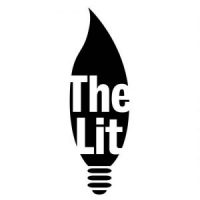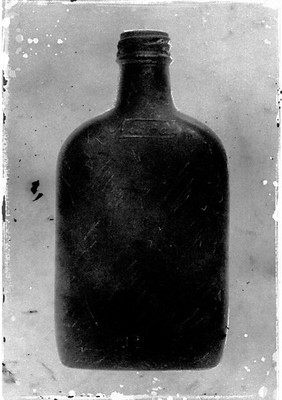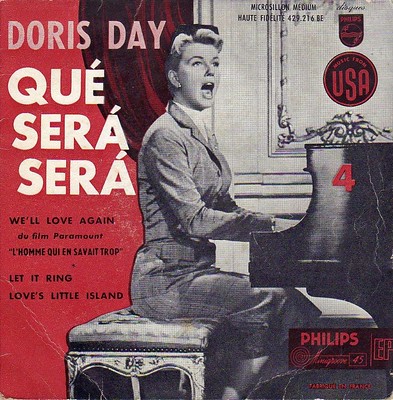by Earthnova
Veronica was in a spacious office. The well-polished furniture and loosely packed bookcase resembled a minimalist but not modern aesthetic, and the large windows had a view of the gridlocked traffic below that stretched for miles.
“So, Ms. Veronica, why did you apply to work for me?” He laid down the resume he had pretended to read and leaned back slightly in his leather chair. Veronica concentrated to ignore her hunger pangs and drowsiness and smiled brightly.
“I am an avid reader so when I saw the ad to work for the best writer of our age, I knew I had to jump at the chance,” she said. As she maintained direct eye contact, the same way she practiced while on the previous dozen interviews that week, she could see his blue irises had green straight diagonal lines in them that intersected with his pupils.
“Well, I’m flattered to say the least,” he said. “To tell you the truth I owe all of my success to my story consultants.” He sat upright. “And one of the perks is that you can spend most of your time reading anything I have in the lobby that you will be working from. So I hope you’ll make use of that.” She stared at him with a neutral expression, expecting to hear a downside. “In short, other than setting appointments and maintaining my calendar the only ‘work’ you will be doing here is making sure I am not interrupted, under any circumstance, when I am speaking with my story consultants,” he said sternly and gestured to the empty chair next to Veronica.
“Take Reggie here for example. Just because he is a ghost and therefore cannot be seen, everyone assumes they can barge in here and demand my attention whenever my office looks empty. This can stop the groove we were in, wasting the whole day.”
“…What?” she said, with her smile cracking. Veronica began to think quickly, replaying in her mind the previous minute of noises coming from the author’s mouth and she pondered how she could have misheard what was said so badly.
“Oh, I should explain. See, all of my story consultants are ghosts of people who died before finishing that great book they were working on. I write it for them, and then with all of their earthly business done, they can get to the afterlife.”
Veronica started to grip the arm rests of her chair. “What?” she said with a small panic in her voice. She realized she did not mishear, he actually believed that he saw ghosts. Dread and disappointment overtook Veronica in equal measure.
“That’s how I became the preeminent ghost writer you see before you,” he said with a rakish grin. She frowned.
“That’s not what the phrase ‘ghost writer’ means. In fact, I’m pretty sure that is the reverse of what it means.”
“Oh, tomato potato,” he said dismissively. He looked over to the empty chair. “Really? I think I’ve heard it my way before,” he said as if he was talking to someone.
Veronica looked back-and-forth between the empty chair and the author. “And you can see these ghosts, how?” she asked.
“Inherited. People like me who were born with angelsight,” he said while gesturing to his eyes. “Have the ability to see the unseen. Some of us see through walls, some see cancer, I see ghosts.”
“If it’s from your eyes, how can you hear them?” she asked with increasing incredulity.
“I don’t … know.” He said after a pause without confidence. His head perked up and he glanced at the empty chair. “Yeah, that is possible,” he said to nobody.
“Do you expect me to believe that you built your career by stealing stories from ghosts?” she asked while staring him down. He became irate.
“OK, so first of all, I don’t steal anything. In exchange for writing their stories down, and taking credit, their torment of clinging onto the mortal coil ends. That is completely fair. Secondly, I don’t expect you to believe anything. I expect you to tell appointments: ‘Sorry, a story consultant just stopped by so your meeting has been pushed back. He will be with you shortly, please wait here,’ while I conduct my business with people like Reggie here.” He said while nodding his head to the chair that still looked empty.
Veronica realized she had wasted her time again. Although she had not decided if he was a charlatan or a loon, she was sure that working here would have no future. This was just like that pyramid scheme she spent 6 hours interviewing for the day before last.
“Oh, uh… Look at the time!” she said, looking at her bare wrist. She forgot she had to pawn the watch she usually wears on it to pay for her resume printing. “I have somewhere else I have to be.” She proceeded to stand up while the author lunged forward with a hand outstretched.
“Wait! I give unlimited vacation days, payroll is run weekly, and the health plan has a zero dollar copay,” he said quickly. She cocked her head.
“What’d you say?”
“Unlimited vacation days.”
“No, after that.”
“Zero dollar copay.”
“No, between the two.”
“… Payroll is run weekly?”
One week later…
“Sorry, a story consultant just stopped by so your meeting has been pushed back,” Veronica said casually between bites of her overpriced sandwich. “He will be with you shortly, please wait here.”
The man standing before her sighed and turned to sit on the plush bench on the other side of the lobby. But he immediately spun back around to face Veronica: “It is absolutely vital that I speak with him now. Otherwise his contract with the studio will eliminate residuals entirely.”
“That does sound important, but so is your client hearing from his consultants,” she said, and then added “Unless you can pass through walls too, you’ll have to wait until he’s ready.”
“What do you mean ‘pass through walls too’?”
Listen to an interview with editorial intern Jin Martin and author Earthnova
Earthnova is a File Clerk from Ridgewood Queens. They are currently enrolled at LaGuardia pursuing a degree in Liberal Arts: Social Science and Humanities. Their likes include Anime, Card Games, and Stand-up Comedy. Their dislikes include Social Media and Flash Photography.
Image credit: Sit Over There, Thomas Hawk. Flickr CC BY-NC 2.0.








